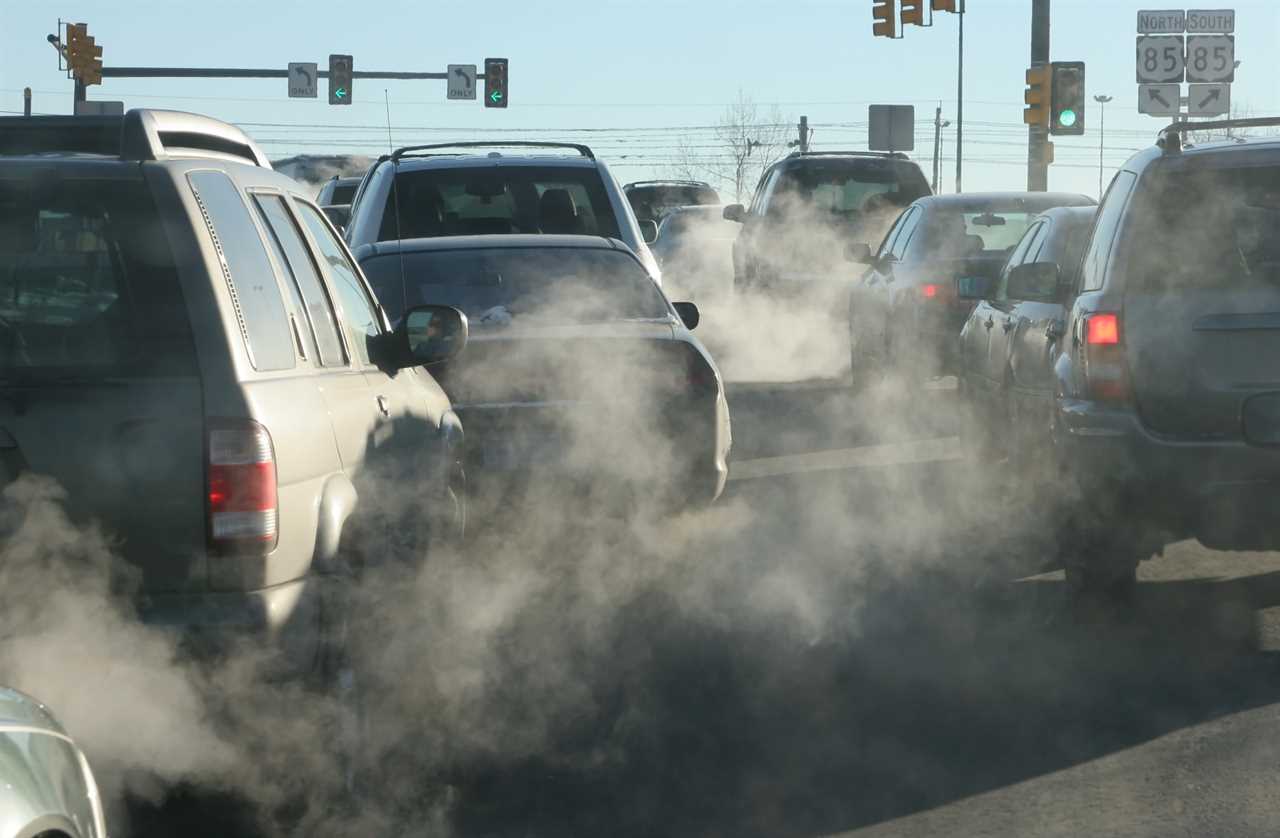SCIENTISTS have discovered how air pollution causes some types of lung cancer.
The “fascinating” findings could pave the way for a cheap, statins-like pill taken by city-dwellers to lessen their chances of getting the deadly disease, researchers said.

Scientists have discovered how air pollution can trigger some lung cancers to develop
The study found just three years of exposure to some pollutants can trigger dormant cancer cells to become tumours in the lungs.
Professor Charles Swanton, of the Francis Crick Institute, said the results could lead to new drugs being developed to stop this from happening inside the body.
He said: “The mechanism we’ve identified could ultimately help us to find better ways to prevent and treat lung cancer in never smokers.
“If you could take a tablet that could interfere with part of the pathway without causing any toxicity, as we do with statins for cardiovascular disease, I think there is hope for the future.
“That’s the aspiration but of course we’re probably 10 or 20 years from that, I think.”
Lung cancer is the UK’s biggest cancer killer, leading to more than 35,000 deaths a year.
Around 6,000 Brits who have never smoked get lung cancer annually, making up around 10 per cent of all cases.
Previous research has linked the disease to a particular pollutant called PM2.5, which is mainly caused by car exhaust fumes and burning wood and oil.
The latest study, published in Nature, added to the evidence around this association and tested mice in a lab to see what was causing it.
They tracked 32,957 people in England, Taiwan, South Korea and Canada to see how many got lung cancer, and compared it to their PM2.5 exposure.
Nearly three quarters of the people who got the disease in Canada were exposed at high levels to the pollutant, they found.
Next, the mice models showed the pollutant caused the body to send immune cells to the lungs, promoting tumours developing.
Professor Swanton said: “Cells with cancer-causing mutations accumulate naturally as we age, but they are normally inactive.
“We’ve demonstrated that air pollution wakes these cells up in the lungs, encouraging them to grow and potentially form tumours.
“Our study has fundamentally changed how we view lung cancer in people who have never smoked.”
Independent experts hailed the research, with some suggesting it should lead to Government action to reduce air pollution.
Dr Peter Chan, of the University of Oxford, said: “This is a fascinating study that sheds light on possible mechanisms by which pollution may promote certain types of lung cancer.”
Sarah Woolnough, chief executive of Asthma + Lung UK, said: “This important research is further evidence of air pollution having a role in causing lung cancer.
“The truth is, air pollution affects everyone’s lungs and is responsible for worsening existing lung conditions and creating new ones in healthy people.”
Professor Matthew Peters, of Macquarie University in Sydney said: “The finding that as little as three years of PM2.5 exposure is enough to have an effect should lead to action now.”






